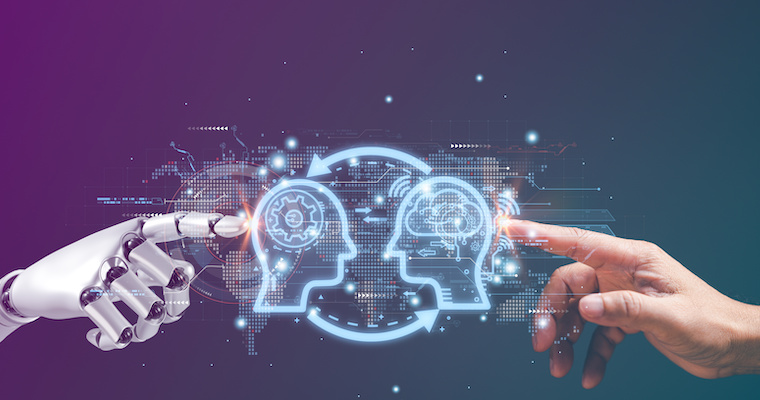Artificial intelligence (AI) is revolutionizing corporate operations in today’s fast-paced digital landscape; it is no more a future concept but rather a reality of the present. AI chatbots in particular are becoming a crucial aspect of managing day-to-day operations for businesses. This essay delves into the possibilities of using AI to manage your entire organization, with a focus on chatbots and how they affect productivity, efficiency, and overall success.
The Rise of AI in Business
Evolution of AI Technology
Over the past few decades, artificial intelligence (AI) has advanced quickly, moving from basic rule-based systems to complex machine learning algorithms. AI can now complete complicated jobs, learn from data, and make decisions with little assistance from humans thanks to its evolution. Companies in a variety of sectors are using AI to improve consumer experiences, cut expenses, and streamline operations.
Key AI Technologies in Business Operations
Several AI technologies are making significant strides in business operations, including:
- AI Chatbots: These automated agents can handle customer inquiries, provide support, and even close sales, freeing up human agents to focus on more complex tasks.
- Machine Learning: This technology allows systems to learn from historical data, identify patterns, and make informed decisions.
- Natural Language Processing (NLP): NLP enables machines to understand and interpret human language, making communication between humans and machines more seamless.
- Robotic Process Automation (RPA): RPA uses AI to automate repetitive tasks, such as data entry and invoice processing, increasing efficiency and accuracy.
AI Chatbots: The Backbone of Modern Business Operations
What Are AI Chatbots?
AI chatbots are software programs designed to simulate human conversation. They use natural language processing and machine learning to understand and respond to user queries. AI chatbots can be deployed on websites, social media platforms, and messaging apps, providing real-time assistance to customers and employees.
Benefits of AI Chatbots in Business
AI chatbots offer numerous benefits for businesses, including:
- 24/7 Customer Support: AI chatbots can provide round-the-clock support, ensuring customers receive timely assistance regardless of time zones or business hours.
- Cost Savings: By automating routine tasks, AI chatbots reduce the need for a large customer service team, leading to significant cost savings.
- Enhanced Customer Experience: AI chatbots provide instant responses, personalized interactions, and consistent service, improving overall customer satisfaction.
- Scalability: AI chatbots can handle multiple conversations simultaneously, making them an ideal solution for businesses experiencing high volumes of customer inquiries.
- Data Collection and Analysis: AI chatbots can collect valuable data from customer interactions, providing insights into customer behavior and preferences.
Implementing AI Chatbots in Your Business
To effectively implement AI chatbots in your business, consider the following steps:
- Identify Use Cases: Determine the specific tasks and processes where AI chatbots can add value. Common use cases include customer support, lead generation, and internal help desks.
- Choose the Right Platform: Select an AI chatbot platform that aligns with your business needs and integrates seamlessly with your existing systems.
- Train Your Chatbot: Use historical data and customer interactions to train your chatbot, ensuring it can handle a wide range of queries accurately.
- Monitor and Improve: Keep an eye on your chatbot’s performance at all times and ask users for feedback so you can make the required adjustments and enhancements.
AI-Driven Decision Making
How AI Enhances Decision Making
AI technology allow organizations to make data-driven decisions by processing large amounts of data fast and accurately. Machine learning algorithms can help organizations remain ahead of the competition by identifying trends, predicting outcomes, and making recommendations.
Real-World Applications of AI in Decision Making
Several industries are already leveraging AI for decision-making purposes:
- Healthcare: AI algorithms analyze patient data to assist doctors in diagnosing diseases and recommending treatment plans.
- Finance: AI models predict market trends, assess risks, and optimize investment strategies.
- Retail: AI analyzes customer data to personalize marketing campaigns, optimize inventory management, and enhance the shopping experience.
AI in Human Resources and Talent Management
AI-Powered Recruitment
By automating resume parsing, interview scheduling, and candidate screening, artificial intelligence is completely changing the recruitment process. AI-powered recruiting solutions can shorten the time and effort required for hiring by analyzing resumes, evaluating individuals’ talents, and matching them with job needs.
Employee Engagement and Retention
AI can also play a crucial role in employee engagement and retention. AI chatbots can handle routine HR inquiries, provide training and development recommendations, and analyze employee feedback to identify areas for improvement.
Future Prospects: AI Running Entire Companies
Autonomous Business Operations
As AI technologies continue to advance, the possibility of AI running entire companies is becoming more plausible. Autonomous business operations, where AI systems manage and optimize all aspects of a business, could soon become a reality.
Challenges and Considerations
While the future of AI-driven companies is promising, several challenges and considerations must be addressed:
- Ethical Considerations: Ensuring AI systems are designed and used ethically is crucial to avoid bias and discrimination.
- Security: Protecting AI systems from cyber threats and ensuring data privacy are paramount.
- Human-AI Collaboration: Striking the right balance between human and AI collaboration is essential to maximize the benefits of AI while preserving human jobs and creativity.
Preparing for an AI-Driven Future
To prepare for an AI-driven future, businesses should:
- Invest in AI Technologies: Stay updated on the latest AI advancements and invest in technologies that align with your business goals.
- Upskill Your Workforce: Provide training and development opportunities for employees to enhance their AI-related skills.
- Adopt a Data-Driven Culture: Embrace data-driven decision-making and ensure your organization is equipped to handle and analyze large volumes of data.
Conclusion
The integration of AI into business operations is not just a trend but a necessity for staying competitive in today’s digital age. AI chatbots, with their ability to provide 24/7 support, enhance customer experiences, and drive cost savings, are at the forefront of this transformation. As AI technologies continue to evolve, the vision of AI running entire companies is becoming increasingly attainable. By embracing AI and preparing for an AI-driven future, businesses can unlock new levels of efficiency, productivity, and success. The future is indeed now, and AI is leading the way.












